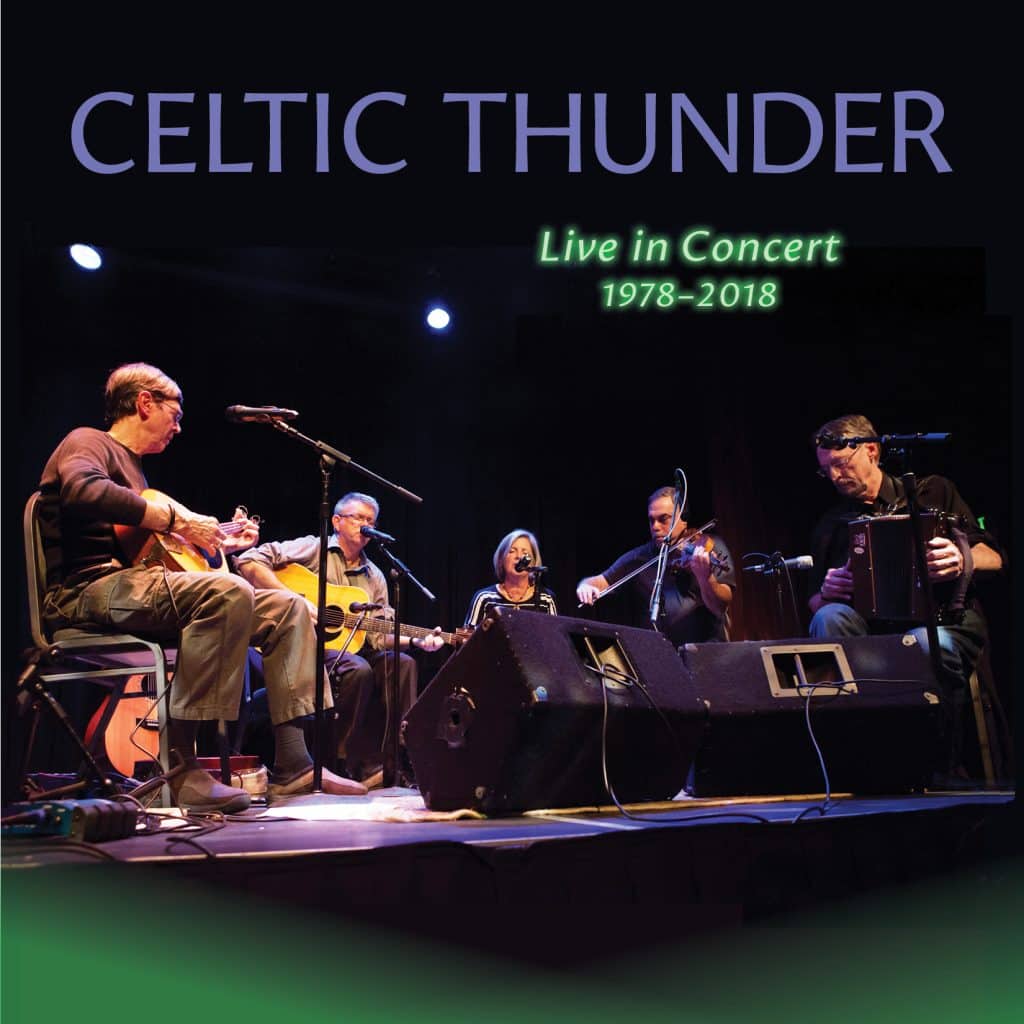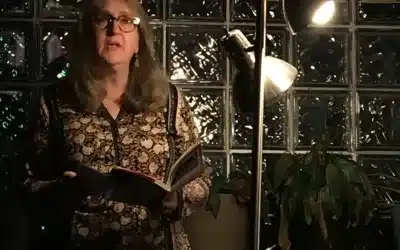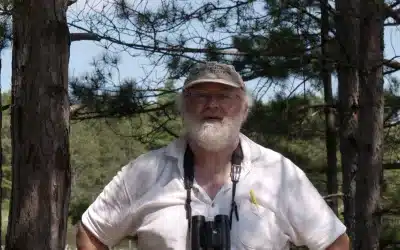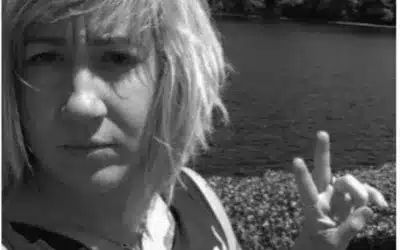Terence Winch’s latest book, That Ship Has Sailed, was published in 2023 as part of the Pitt Poetry Series from the University of Pittsburgh Press. He is the author of eight earlier poetry collections. A Columbia Book Award and American Book Award winner, he has also written a young adult novel called Seeing-Eye Boy and two story collections, Contenders and That Special Place. His work has appeared in many journals and in more than 50 anthologies, among them the Oxford Book of American Poetry, Poetry 180, and 6 editions of Best American Poetry. Winch is also the author of That Special Place: New World Irish Stories, a collection of non-fiction stories that come primarily out of his experiences playing traditional Irish music with Celtic Thunder, a band he started with his brother Jesse in 1977. He is the recipient of an NEA Poetry Fellowship and a Gertrude Stein Award for Innovative Writing, among other honors.

Hanging Loose Press: What are this past year’s (or more recent) accomplishments that you are most proud of?
Terence Winch: I’m very happy to have a new book called That Ship Has Sailed come out just last month (Feb. 2023) from the University of Pittsburgh Press’s Pitt Poetry Series. And this month (March 2023) my band released its first album in many years, called Celtic Thunder Live in Concert. I produced it, drawing on hundreds of live concert recordings spanning 40 or so years. It includes some of my original compositions, among them a musical version of a poem (“Dead Stop”) that appeared in my last Hanging Loose book, The Known Universe.
Side note: In addition to The Known Universe, Hanging Loose Press has published Winch’s That Special Place: New World Irish Stories, Boy Drinkers, Falling Out of Bed in a Room with No Floor, & This Way Out.
HLP: Can you comment a bit on your life as a poet and musician? Parallels? Conflicts?
TW: Those lives are very intertwined, more so than they were when I was younger. When we do concerts (a rarity these days), I customarily do a mini-reading. 6 or 7 minutes of something usually related to the music. In fact, That Special Place, which HL published in 2007, consists primarily of very short prose pieces I wrote about being in the band that were designed to be read on stage. Songs come infrequently to me these days, but I think you can hear the literary resonances here and there in my songs. My new book, e.g., has mermaids on the cover and “The Irish Riviera” ends with a mermaid appearance! I blame it all on T. S. Eliot and “Prufrock.” Certainly, in Irish cultural life, music and poetry are natural allies, close first cousins.

HLP: Are there any particularly difficult experiences/challenges you had to work through you this past/current year?
TW: One of my dearest friends, Doug Lang, died in November (on the same day as Bernadette Mayer). Born in Swansea in Wales, Doug was an extraordinary writer, but for most of his life was disinclined to publish or promote his work. I helped put together his literary archive a few years ago, which was acquired by The Burns Library at Boston College, also home to my music/literary archive. Now I’m going through all of the work of his I have in my own possession that I hope will also wind up in Boston. Doug is so present in his writing, and that’s a comfort. We were friends for 50 years, and I miss him greatly.
HLP: So sorry to hear about the loss of your good friend. Did you want to share some of Doug’s work, a piece that is helping you feel connected to him?
TW: Doug and I talked literally every day for the past six years, and on many days of the week in the years before that. So I feel that there’s a continuous conversation going on with him inside my head that will simply continue. (I’ve had a similar 50-year conversation with Michael Lally, whose friendship is also crucial to me.) About 10 years ago, before Doug started losing his short-term memory, I recorded a 6-hour interview with him over an 18-month period, which you can hear on Penn Sound
(https://www.writing.upenn.edu/pennsound/x/Lang.php).
Every once in a while, I’ll click on a random spot in the interview just to hear him talking. I have a massive trove of his work, which I’m always dipping into.
You almost can’t miss:
Women walk out of the picture. Men let a song go out of their heart. Men are
lost in meditation. Women are in another world. Women are dancing on the stars.
Men are floating like sailboats in the moonlight.
Women write in invisible ink. Men step out of the future. Men receive letters on
birthdays. Women watch the road for the limping footsteps of the mail carrier.
Women receive letters on birthdays. Men watch the road for the limping footsteps
of the mail carrier. Men write in invisible ink.
[from “Women are from Pittsburgh, Men are from Miami”]

HLP: What are three books you’ve read recently that have made an impression on you?
TW: DC’s Edge Books published a fantastic selection of Doug Lang’s poems called In the Works. That’s at the top of my list. It came out just a few days after he died, but I had shown him a PDF of the whole thing weeks earlier, so he was aware of it. I think (& hope) that his brilliance will be widely recognized as more and more people read his work. Of all of the fiction I’ve read since lockdown, my favorite novel was Niall Williams’s This Is Happiness. Everything about this book—the writing, the story—-was mesmerizingly seductive and wise. I also loved Fintan O’Toole’s personal history of Ireland over the past 60 years or so, We Don’t Know Ourselves (2022). Anyone who has read O’Toole’s dazzling pieces on American politics in the NY Review of Books and elsewhere knows what a masterful and entertaining journalist he is. I’ve been editing the “Pick of the Week” feature on the Best American Poetry site, and that’s introduced me to the work of scores of great poets. Two stand-outs among the books I’ve read for the feature are Olena Kalytiak Davis’s The Poem She Didn’t Write and Other Poems and my old friend Joan Retallack’s Bosch’d. Davis’s linguistic imagination is a wonder to behold, and Joan’s poems are exhilaratingly intelligent. I should also mention an eccentric but compelling book by Irish poet Doireann Ní Ghríofa called A Ghost in the Throat. She calls the book a “female text” in which she tells her own difficult story while simultaneously reporting on her obsessive research into the life of an 18th-century Irish-language poet named Eibhlin Dubh Ní Chonaill. It’s a knock-out, even if you’re not female.
HLP: Yes, you have been curating the “Pick of the Week” for some time now, where you cultivate an ecelectic roster of poets and artists. Can you talk a little bit about your process for featuring poets and their poems?
TW: I sometimes tell people I have a great Pick of the Week staff and a big budget, but it’s just me and it’s all done pro bono, though David & Stacey Lehman, who run the Best American Poetry site, are always supportive. I spent my worklife first as the Corcoran College of Art’s first writing teacher, then as a editor and museum publisher at several Smithsonian museums, producing (as editor or project director) some 60 or 70 books, not to mention recordings, and a multitude of other kinds of print products. Everything I did required knowledge and skill as a writer and editor, of course, but also a feel for design and for visual material. Most of what we produced involved multi-author, full-color, heavily illustrated publications. I like to think that that experience has been useful in doing Pick of the Week. The picture research can sometimes go very fast, but often it will take me hours to find an image I think somehow complements the featured poem. And I try to make the page layout appealing to the eye. As for selection process: I alternate each week between male and female poets, while also paying attention to other kinds factors—identity, race, ethnicity, e.g. I look for work everywhere—I buy books, I borrow print and digital texts from the library, I scour online sources, literary journals, etc. Friends and others suggest poets to me. I look for short poems that have a kick to them, some sign of life. I think of Emily Dickinson asking Thomas Wentworth Higginson, “Are you too deeply occupied to say if my Verse is alive?” and I know exactly what she means. I look for poems that have some life to them. I have learned to check first to see if a particular poet is easily contactable before investing a lot of time in reading their work. In the end, I’m limited by my own taste and biases, as are we all, but I do try to be open and eclectic.
HLP: What are your upcoming projects?
TW: Hanging Loose will be bringing out a book of mine next year called It Is As If Desire, a collection of occasional love poems. All of the poems are 10-liners, and I find great appeal—for me, at least— in their compactness and brevity. The Winch Family Band (me, my brother Jesse, my son Michael, my niece Fiona, and my nephew Patrick) will soon be releasing a recording called The Irish Riviera. It’s a mix of songs and tunes, with Fiona taking the lead on the vocals. The title comes from a song of mine that celebrates the heyday of the Irish in Rockaway in Queens. We’re all excited that it will soon exist in the world. A number of musician friends have also pitched in on the recording.

In the meantime, purchase Terence’s current illuminating poetry collection from the following:




